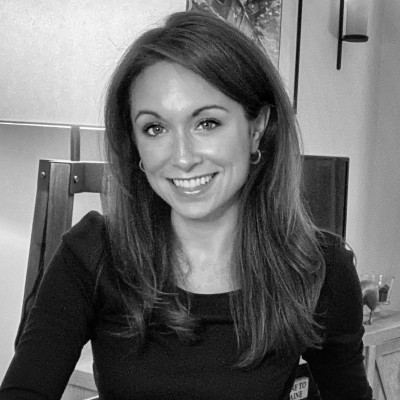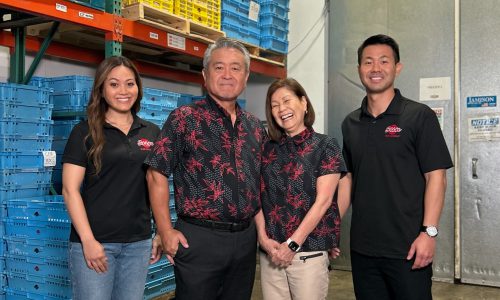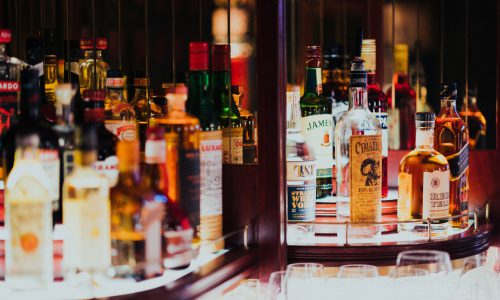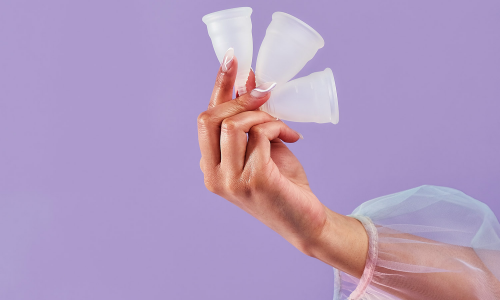Join Founder and CEO of ForceBrands and PINATA Josh Wand in 10-minute conversations with leaders across the consumer brand universe. The series of fireside-like chats, originally shared on his LinkedIn, feature some of the industry’s most game-changing thought leaders.
Watch the video to catch up with Deborah Brenner, Founder of Women of the Vine & Spirits. Read the full interview transcribed below.
Deborah Brenner: I always say if I ever do like a TED Talk or something, it’s gonna be, How to become an overnight success in just 15 years.
Josh Wand: That’s wild. I am just so grateful to be able to have this conversation with you because you’re one of the humans on a professional, personal level that I respect and admire the most, you know, in the wine and spirits space. And just in the brand universe. What you’ve created and what you’ve been able to accomplish and how you bring community together and would love for you to share more about your journey in the space and kind of your initial vision if you will for founding Women of the Vine and Spirits.
DB: Prior to going into the wine industry, I spent just over 15 years in high-end technology working out of New York City, traveling around the world. It was for technology for television and film studios. I was like a kid in a candy store because back in the late 80s I was playing with high-def television. I was playing with disc recorders and stuff where you know we didn’t even have DVRs and stuff like that available to the public yet so it was really an exciting time but it was all men. I loved what I was doing but I got very disenchanted as I started moving up the ranks. There were no female role models. There’s lots of inappropriate behavior, of course. There were all kinds of stereotypes and adversity, and I just felt, for me, every day was a challenge. I started exploring other things and that led me to explore my passion. I took a trip to Napa and Sonoma, and the next thing I knew, I couldn’t believe all the women that I discovered were behind some iconic brands because I was a wine enthusiast. I love wine. But I didn’t know that the women were behind these so that really kind of piqued my interest. Who are they? What do they do? Are they feeling the same way in such a male-dominated industry? And I ended up coming back to New York and I wrote a book. I started interviewing them. “Women of the Vine,” that’s where the name comes from. And Josh, this October that will be 15 years.
JW: When Wine Spectator named it a critical read in 2007, that is the year that I founded my business ForceBrands, which seems like a whole world ago. That’s so wild, 15 years.
DB: The world wasn’t ready for my message in 2006. I really was talking about championing these women as pioneers and trailblazers, wanting to give them a legacy in this industry. I ended up going into the wine business myself because the world wasn’t ready for me to start talking about diversity, equity, and inclusion, right? I mean think about 2006, 2007. I don’t think those terms were even really being widespread and used.
JW: I’d love to hear more about that. So you write this book. You’re so passionate about this. You realize that there’s like this connective tissue and all these powerful women in the wine industry. You win this wonderful award from Wine Spectator and then you say, I’m actually going to create my own wine label.
DB: That was the crazy part.
JW: What was it called. What were the varietals? Where did you do it?
DB: This was the crazy part because I remember when I got the deal with the publisher, they gave me four months to complete the book and I decided at that time I had to leave my job because I wouldn’t have been able to do it. So talk about a leap of faith but I’ll never forget when I went in to give my resignation and tell my boss what I was doing, he said you’ll never make it, you’ll be back. So when my book got published, I sent him a copy. Talk about self-doubt. It was the stories of the women that made me persevere and not give up and not have doubt, because that’s what we’re doing here, right Josh? We’re sharing our stories and when we share with each other our trials and tribulations, our successes and our failures, that’s what inspires and empowers others so I wanted to raise awareness of women in the wine industry and the only way I saw fit back then was to create Women in the Vine Cellars which was the first artisan collaborative label of seven artists and women winemakers in Napa, Sonoma, and Paso Robles and so they all had their own signature style of wine. Heidi Barrett, who is extremely well known, the first and only person to get five 100 points from Robert Parker and some of her wines, and Screaming Eagle. So she made her syrah. We had Carol Shelton making her zinfandel. We had Signe Zoller making her Paso cab. We had Dorothy Schuler making tempranillo out of Paso Robles. It just was an amazing collaboration but again 2006, 2007 recession. Also the three-tier system. We didn’t have e-commerce back then. We didn’t have DTC. And I think back, Oh my gosh I was just too early to market once again. I had a good seven-year run, got distributed in 12 states, learned the business inside and out, but the most important thing Josh is that I met the most incredible people in the industry like you have, and that’s what gave me the opportunity to transition into what I’m doing today.
JW: What ultimately made you decide to pivot from this and refocus your efforts back on championing women in the wine industry and creating this global symposium in 2015? What was that light bulb, the spark?
DB: After I closed down the wine business, I was free to really dig my heels into equality, equity, intersectionality, all of these things that you know out there selling I wasn’t able to fully express myself, and the light bulb for the symposium I have to say came from a conversation with a male ally so I actually was on the phone with Ben Salisbury from Constellation Brands and he just left to go out on his own consulting, and we were just chatting and I was mentioning how all these women over the years would email me, ‘I’m a woman of the vine,’ ‘My mom’s a woman of the vine,’ ‘My sister’s a woman of the vine,’ and it was just during conversation that we realized how people were identifying themselves by being within the industry and that was the lightbulb after thinking we can host a conference and bring men and women together and actually the first time, and the largest gathering, focused not on the product or wine growing or DTC but actually focused on diversity, equity, and inclusion and that was in 2015.
JW: I remember attending your early wine symposiums and they were sold out and they were magic. And the energy was palpable. The connectivity was phenomenal and everyone took away this kind of community feel and I was a male there and I said there just needs to be more of this and it’s so amazing to see how it’s grown and developed organically with a lot of hard work and a lot of people supporting this mission but at the early stages like you could just feel it. It’s so interesting. Like I know what I took away from it, but what was your hope that humans would take away from this symposium?
DB: The vision really, and I love that you use the word human, right? I like to think of myself as a real social entrepreneur. There’s people, purpose, and profit. And profit will come when you look at your purpose and you look at your people and so what I think the real vision at the beginning was that I had been in one industry that was so male-dominated that I felt I couldn’t bring my full authentic self to work and therefore I could never really be the best that I could be and achieve what I wanted to. I wasn’t going to leave another industry that I loved. I love this industry. It’s a great industry. The people are amazing, so instead of just getting frustrated, I said then we got to change it. So I think the vision for me was exactly what you just said, is for people to come in and have a human experience. To come and realize that when you look at diversity, equity, and inclusion, then you’re going to get business development and innovation. So I always say at Women of the Vine and Spirits that what our pillars are is DE&I, and BD&I, business development and innovation will just naturally come when you have all of these diverse people, and thoughts and ideas. And that’s the beauty that comes together naturally and I think that’s really what the foundation has been built upon.
JW: Whether you’re male or female, or regardless of your ethnicity, you’re just so open to the conversation and the collaboration and that’s what makes the world go ’round.






